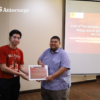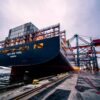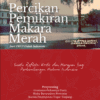Maintaining maritime safety is paramount and shall not be compromised in the shipping industry. For that reason, the rule of law is needed to minimize the risk of accidents happening at sea. In accord with such purpose, the Government Regulation No. 9 of 2019 on Examination of Shipping Accidents (GR No. 9/2019) exists as correctional procedures in case of shipping accidents occur within the Indonesian waters.
According to the GR No. 9/2019, the examination of shipping accidents is carried out in 2 (two) stages:
- Preliminary examination which performed by relevant harbormasters; and
- Further examination to be carried out by the Admiralty Court subject to the outcome of the earlier stage.
At the end of the examination process, the Admiralty Court issues a decision regarding the shipping accidents which explained below.
Not a Court of Law
The Admiralty Court was first established in Indonesia during the Dutch East Indies era in 1938 by virtue of Ordonanntie op den Raad voor de Scheepvaart (Staatsblad 1934 No. 215). It is important to understand correctly, despite using the name “court”, the Admiralty Court is not part of the Indonesian judicial system under the Supreme Court. Instead, it is a sub-organization of the Ministry of Transportation. At present, the existence of Admiralty Court is regulated in the Regulation of Transportation Minister No. PM 3 of 2021 on the Organization and Working Administration of Admiralty Court.
Panel of Experts
Further examination of shipping accidents in the Admiralty Court is carried out by a panel of experts. The panel must consist of experts on nautical, marine engineering, and maritime law. The number of experts on the panel must be odd with a minimum of 5 (five) members who can be government officials or external professionals.
In the examination at the Admiralty Court, the panel of experts scrutinizes the cause of shipping accidents and concludes whether there is any violation or negligence in the application of seafarers’ professional standards committed by masters or officers of the implicated ships.
The Examination in the Admiralty Court
Further examination in the Admiralty Court is conducted subject to the result of the preliminary examination. If it finds preliminary information or evidence that leads to the allegation of negligence and/or violation of the seafarers’ professional standards, the Admiralty Court shall conduct the further examination on the accidents.
The further examination is conducted in public open hearings where the implicated master and/or officers are presented as suspect(s). In the hearings, the panel of experts examines facts contained in the minutes of the preliminary examination, evidence, and other related documents. If deemed necessary, the panel may also hear witnesses and experts.
Right to Counsel
The laws are silent regarding the right to counsel in the examination at the Admiralty Court. Such absence of lawyers’ role is presumably based on the rationale that the further examination is not considered as a trial process in a court of law.
However, the master and/or officers being examined as suspects have the right to be accompanied by a maximum of 3 (three) expert advisors. They must be an expert in either nautical, technical, electrical, marine engineering, or maritime law. Hence, there is a possibility that the master and/or officers be accompanied by a maritime lawyer during the examination in the Admiralty Court even though the laws do not explicitly provide a right to counsel.
The Decision
At the end of the examination, the panel of experts shall render a decision based on the presented evidence and relevant laws. In the grounds for decision, the panel of experts is required to elaborate its opinion on the following matters:
- Ship condition (e., ship documents and crews).
- Ship stability.
- Weather conditions.
- Cargo/passengers.
- Navigation/maneuver of the ship.
- Cause of the accident.
- Rescue efforts.
- Fault and/or negligence.
The Admiralty Court will impose administrative sanction if the further examination finds that the accidents were caused by violation or negligence of the master and/or officers in applying the seafarers’ professional standards. The administrative sanction can be in the form of reprimand or temporary revocation of their seafarer license for a maximum period of 2 (two) years.
Based on decisions rendered by the Admiralty Court, the Minister of Transportation executes the recommended administrative sanctions against the implicated master and/or officers. In special cases, the Minister may consider imposing other administrative sanctions different from the recommendation made by the Admiralty Court.
Sanctions against Foreign Masters and Officers
Masters and officers with foreign nationality of foreign-flag ships implicated in accidents occurred within the Indonesian jurisdiction are subject to the examination in the Admiralty Court. In such cases, the relevant harbormasters who carry out the preliminary examination may collaborate with their foreign counterparts. However, the laws do not clearly explain regarding the imposition of sanctions on foreign suspects.
In an examination of a collision case between a Singaporean chemical tanker with an Indonesian ro-ro ferry in Sunda Strait, the Admiralty Court concluded that the first officer of the tanker who is a Chinese citizen had failed in performing good seamanship which contributed to the cause of the accident. In said case, the Admiralty Court handed over the discretion of imposing the sanction to the Chinese Embassy in Jakarta.
The same approach was also taken in two other cases, where the Admiralty Court concluded that masters and officers with foreign nationals were at fault in shipping accidents involving a Panamanian-flag tanker and an Indian-flag ship respectively.
The Power to Resolve Shipping Disputes
The laws clearly say that the power of the Admiralty Court is limited to examine whether there is negligence or violation of the seafarers’ professional standards in shipping accidents. Therefore, the Admiralty Court does not have the power to examine and resolve disputes concerning maritime claims that arise from shipping accidents.
Shipping disputes related to collision, cargo damage, and any incidents occurred in the Indonesian waters are subject to the jurisdiction of the general court in Indonesia.
The Admiralty Court’s Decisions and the General Court
The decisions of the Admiralty Court are administrative sanctions which intended to uphold the seafarers’ professional standards. They are not binding on the general court in either civil or criminal cases despite can be submitted as evidence in the general court.
Judges of the general court have full discretion to make a different opinion in examining and deciding shipping accident-related disputes. In the above collision case where the Admiralty Court decided that the Chinese officer was guilty of not performing good seamanship, the general court saw the facts differently and then decided to acquit the Chinese officer.





